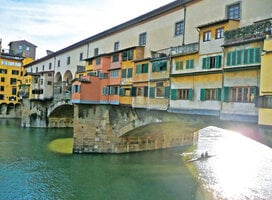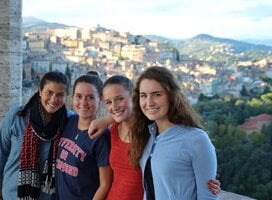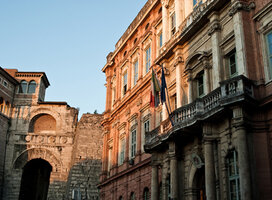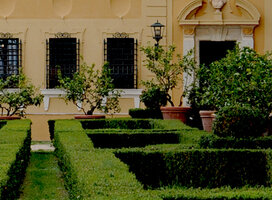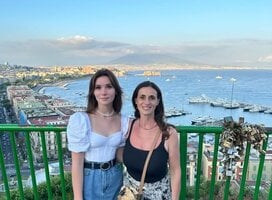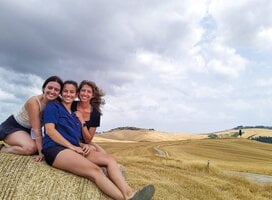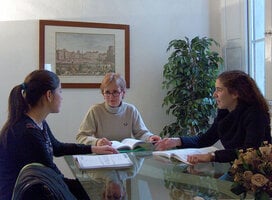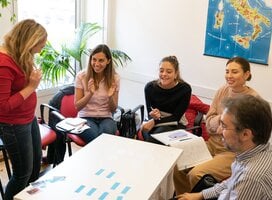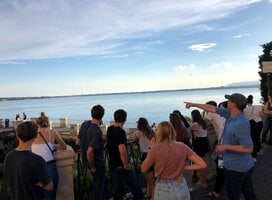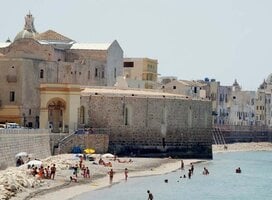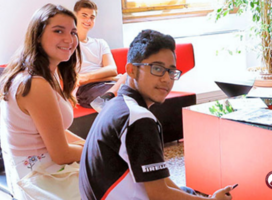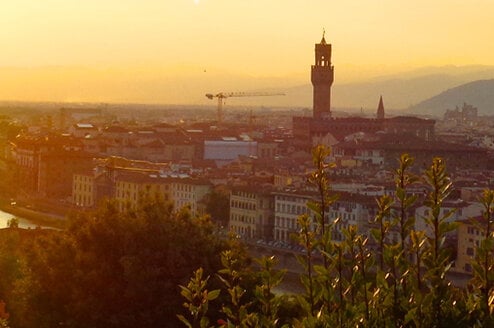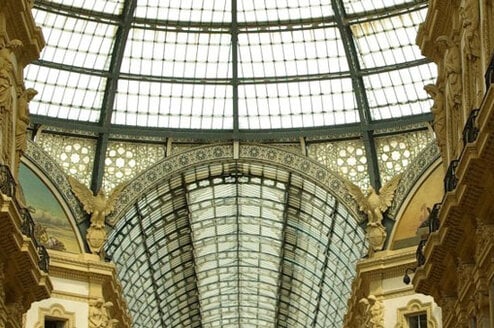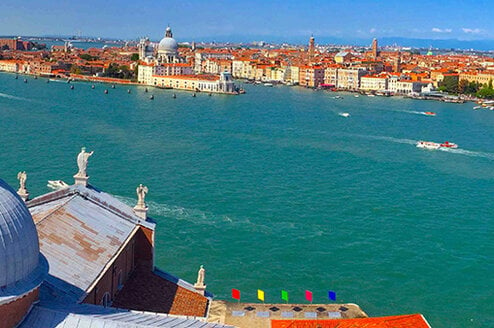Study Abroad Programs in Perugia, Italy
Perugia is central Italy's university city. Located in the Umbria region, the historic capital sits poised on a hill overlooking green fields as students and locals mingle along cobblestone streets below striking city walls.
Loved for its medieval structures and art, original chocolates, and annual Jazz Festival, the quaint town is every study abroad student's dream. There are opportunities in a variety of course programs, immersive Italian language classes, and all the food and music your heart desires.
If you are considering Perugia, Italy as a study abroad option, review this detailed guide to help you decide whether Perugia is your next gap year destination.
Direct Enrollment
Students can enroll directly with the Umbria Institute for courses with Università per Stranieri di Perugia: a prestigious university for language instruction.
Their Authentic Immersion Program is designed to help foreign students focus "exclusively on Italian language and culture". This program fully immerses intermediate to advanced linguistic students with Italian-only courses, intensive curriculum, and a 27-hour weekly schedule.
Language Immersion Programs
If such an intensive program feels too demanding for you, Perugia is still an ideal destination to study Italian. With language programs for various levels, cultural excursions, films, and academic lectures, the small town setting weaves opportunities to practice Italian amidst your daily routines.
Language courses can last a little at 10 days to a year and may include in-depth lectures, guided tours and activities, and workshops. Many of these courses also offer certification upon successful final examinations, providing proof and fulfilling prerequisites to advance to the next level.
History Programs
What many travelers who visit Italy love most about the country (besides food and wine) is its historic cities. The walls of Perugia hold century-long secrets and wonders -- whether the arts, literature, or archeology, Perugia's well-preserved state offers prime research and fieldwork opportunities.
Between music and concert halls, museums, and historical landmarks, these programs transport students to the town's medieval past.
Culinary Studies
Why not further explore Europe's gastronomic haven while studying abroad? With both rich history and flavor, Italy is known and loved for their delicious culinary offering.
Some study abroad programs in Perugia can fulfill your love for Italian food by expanding your knowledge of regional and national cuisine origins, science, and production. You may pair a culinary program with Italian language courses for a well-rounded experience.
Semester and Year-long Programs
Most study abroad programs in Perugia run throughout the year. With fall, spring, and summer semesters, you can join programs during the season of your choice, if not a full academic year.
Besides Italian, culinary, and history courses, there is opportunity to boost your academic resume in marketing, political science, humanities, education, and literature.
Visas and Entry Requirements
For students from outside the EU who wish to enroll in a study abroad course in Perugia, a student visa is necessary before your arrival, issued by your state of origin. Along with this visa, you must posses a copy of your passport and insurance policy, as well as certified proof of the academic course (endorsed by the Italian Diplomatic Consular).
The process varies for those staying less than 90 days, as it depends what country your passport is from, as well as the country you directly arrive from. It is best to consult your program counselor to confirm what next steps are necessary, according to the program itinerary.
Housing and Transportation
Depending on the program you choose, housing may be provided for you. Accommodation options include student dormitories, hotels, home-stay arrangements, or independent apartments. Past students report living with a host family was the best part of their immersion experience.
Access to larger cities like Venice, Milan, Florence, and Rome are made easy with public transportation (buses and trains). Study abroad programs may also facilitate excursions to explore Umbria, Tuscany, the Almafi coast, Roman Baths, and more.
Within Perugia, using the scale mobili (public elevators and escalators that connect pedestrian routes) is quite common, in addition to motorbikes, taxis, and buses.
Costs and Budgeting
Average costs throughout Italy vary by city and region, using the Euro. While northern Italy is more touristic with higher prices, larger cities throughout the country also experience pricing nearly on par with popular European destinations.
Perugia's central location and lower tourism volume, however, makes it relatively affordable in comparison. Expect to pay $7-14 for a meal; $400-800 per month for rent (depending on furnishing, size, and location); and less than $10 for most personal care products.
Lastly, in addition to need or academic-based scholarships, be sure to check with your program to see if fees include meals, course materials, excursions, and basic business amenities (wi-fi and printing) -- which can make or break your budget. Study abroad programs in Perugia range from $500 to $15,000, depending on the duration of the session.
Remember: Budgeting in Perugia depends on the strength of the Euro -- it is wise to review the rate daily, as it can change quickly. Expect to see prices skyrocket in July, during the Umbria Jazz Festival.
What to Pack
Perugia is a four-season destination with year-round humidity and rainfall. Spring and Autumn (March - May and September - October, respectively) are Perugia's high points. The mild weather is comfortable and inviting (with less rain), calling for light layers and warm sweaters at night.
- November - February (winter): January is Perugia's coldest month, dropping as low as 34°F. Because it is on a hill, there may also be strong winds. November is the wettest month, so warm clothing and a rain jacket is recommended.
- June - August (summer): July and August are Perugia's hottest months, reaching up to 88°F. It is often hot and muggy with scattered thunderstorms, so light clothing and breathable coverage is necessary.

